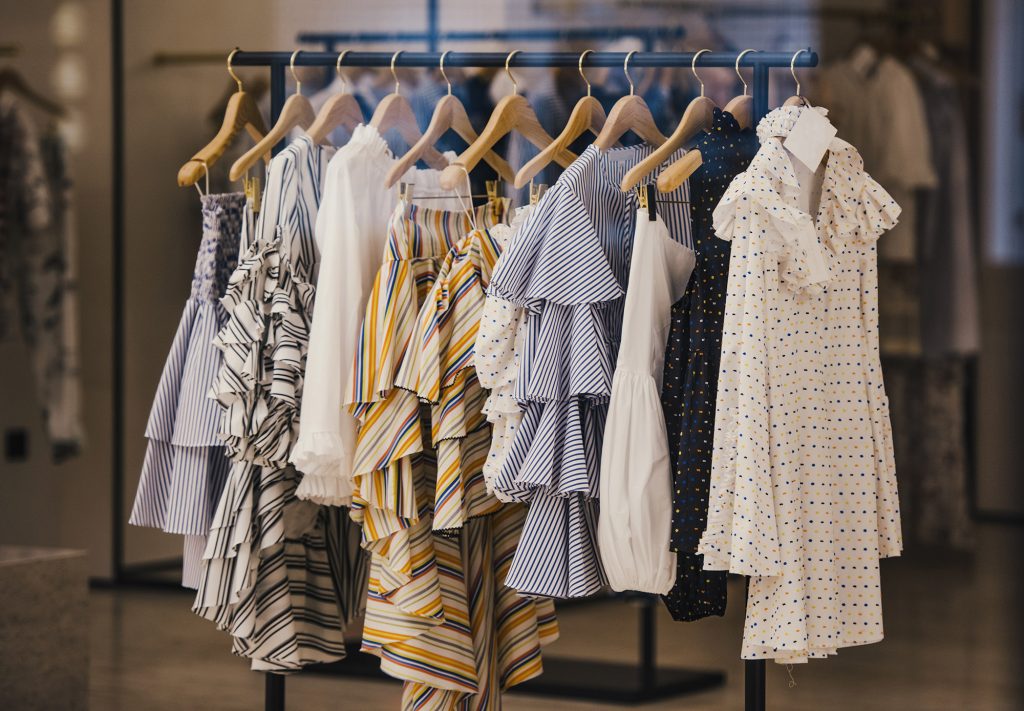There are some ethical fashion ‘facts’ floating around that I come across regularly, which are frankly bullshit. So here are a few I have debunked.
1. It’s the second most polluting industry in the world
While not related to ethical fashion specifically, it is a myth circulating the fashion world that needs to die. It’s simply not true and we finally have definitive proof.
A recent report by Quantis found that the apparel industry accounts for 6.7% of the world’s greenhouse gas emissions making it the fourth most polluting industry in the world.

“We knew fashion’s impact was major, but we didn’t have an exact science based metric view of what this really meant. This study enabled us to answer some of these outstanding questions, bust some of our collective assumptions, and to provide guidance to those committed to act.” Annabelle Stam – Senior Sustainability Consultant, Quantis
2. It’s ugly
I beg to differ. The assumption that ethical fashion is all hippy, hemp sacks is dead wrong.
A quick glance at the social media feeds of myself and many ethical fashion bloggers show a wide variety of fashion styles and beautiful, thoughtful designs from conscious fashion brands, small and large.
I bet you’ve even worn some ethical fashion brands without even knowing it. One is example is Cue, an iconic Australian brand, ethically manufactured in Melbourne and accredited by Ethical Clothing Australia. Most Aussie women have owned a Cue piece during some stage during their lives.
I know style is very personal and beauty is subjective, but there are many ethical fashion brands out there who create gorgeous, wearable clothing which appeal to the masses. Here’s a list I prepared earlier.

3. It’s not easy to find
Maybe a few years ago but 2017/18 has seen a boom in fashion brands becoming more mindful of how their clothing is produced due to consumers demanding transparency.
Google the words ‘ethical fashion’ and in 0.84 seconds you’ll receive 1,520,000 search results. I will concede finding shoes and bags are still a challenge, but finding ethically made clothing is easy.
There are so many options available, you only need to invest a little time into researching brands or check out one of the many ethical fashion bloggers who have curated lists of brands.
Here are just a few:
4. It’s not affordable
We’ve become so accustomed to the cheap, fast fashion that has flooded the market, we’ve forgotten the true cost of clothing. A t-shirt should not cost the same as a cup of coffee. Not if every person within the supply chain is being paid fairly.
Ethical fashion can cost more than their amoral counterparts. However, buying cheap, poorly made items of clothing that will fade and fall apart after a few washes is not affordable when you need to replace them every few months. The solution is to stop buying into trends, buy less and invest in well made, timeless pieces.
I also have some tips here on how to shop for ethical fashion on a budget.
5. It’s better to donate your clothes
Frankly it’s not. We live is a fast fashion, throwaway world where we justify our over consuming by donating our old clothing to the local op shop. Out of sight, out of mind is not good for the planet or the charities who have to deal with your unwanted stuff.
Lifeline Australia stores say that only one third of all donated clothing is good enough to sell in stores. One third is packed up to be exported, a practice that can’t go on for much longer as developing nations are refusing our old clothes.
Our damaged, unwanted clothing donations are costing charities millions of dollars a year to process and most our ‘donations’ end up in landfill regardless. Please think twice before you donate your old clothes and follow these tips when you do.
What ‘facts’ are you tired of hearing?


